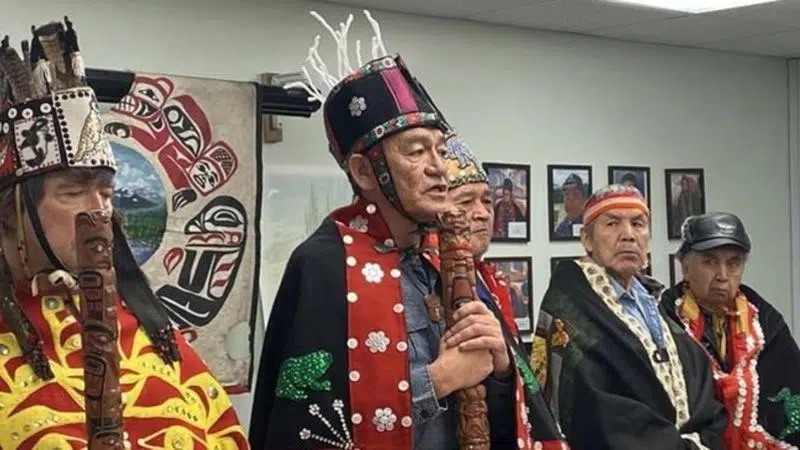
SOUND OFF: Blame the treaty process for the confusion over pipelines on Wet’suwet’en territory
THE WET’SUWET’EN HEREDITARY CHIEFS claim the Coastal GasLink pipeline crosses their traditional lands and they are refusing permission for this. They have a case.
When B.C. joined Canada as a province in 1870 the federal government began negotiating land surrender treaties for Canadian bands (mostly from Western Canada). The B.C. provincial government under Joseph Trutch refused to allow more than four acres of land per native family as a land settlement. The treaties signed on the Prairies gave 160 acres per family for their reserves. Frustrated from lack of support from the B.C. government, the federal government gave up on attempting to get land settlement in B.C. Since 1870, B.C. is the only province that does not have land surrender treaties with its native bands. The federal Department of Indigenous Affairs gave each B.C. band after 1870 a small reserve that, in most cases, gave the native people room for a house — but not enough to make a living.
Consequently, B.C. bands were in a much poorer situation in relation to all other bands in Canada, who had negotiated native land of at least 160 acres per family. B.C. bands for over 100 years have pleaded and protested this deprivation that has been continued by subsequent B.C. governments. After years of protest by native B.C. bands and numerous court cases outlining this injustice, the B.C. NDP government in the 1990s finally got negotiations started for land surrender treaties. The B.C. government agreed to pay 50 per cent of the cost of settlement (in land). The B.C. and federal governments pledged to give each band full title to their traditional territories.
Negotiations of over 20 years for these treaties have, so far, done very little in getting treaties signed. The main obstacle has been the bands’ claim for nearly all land in B.C. as their traditional land. Although British Common Law states that original residents have ownership; to claim most of B.C. seems to be unrealistic to non-native negotiators. This delay prompted the Wet’suwet’en band to take their land claim to the courts. The resulting Delgamuukw court settlement stated that the band was fully entitled to all the traditional land they claimed. At about the same time the elected Wet’suwet’en band council gave approval for the Coastal GasLink pipeline to go through their territory.


